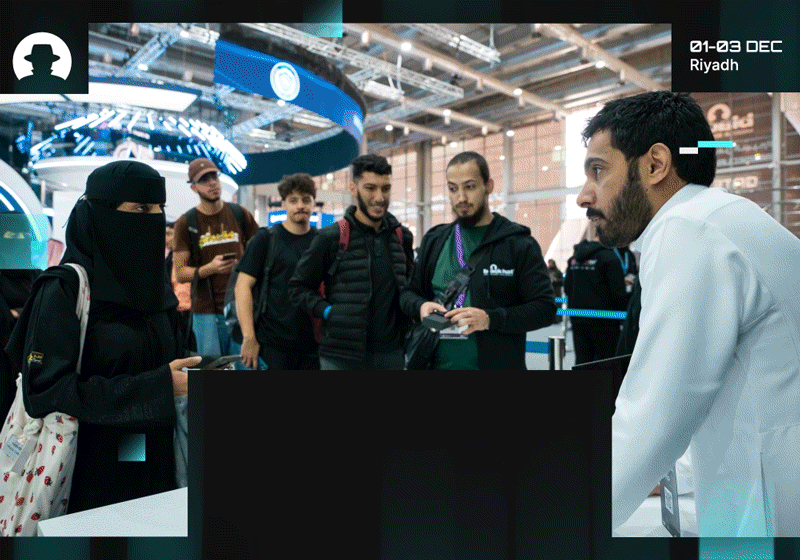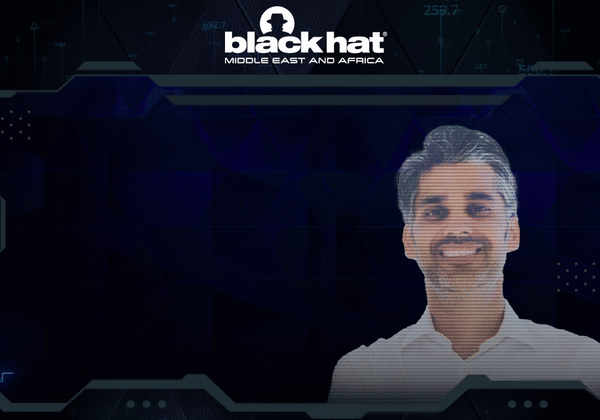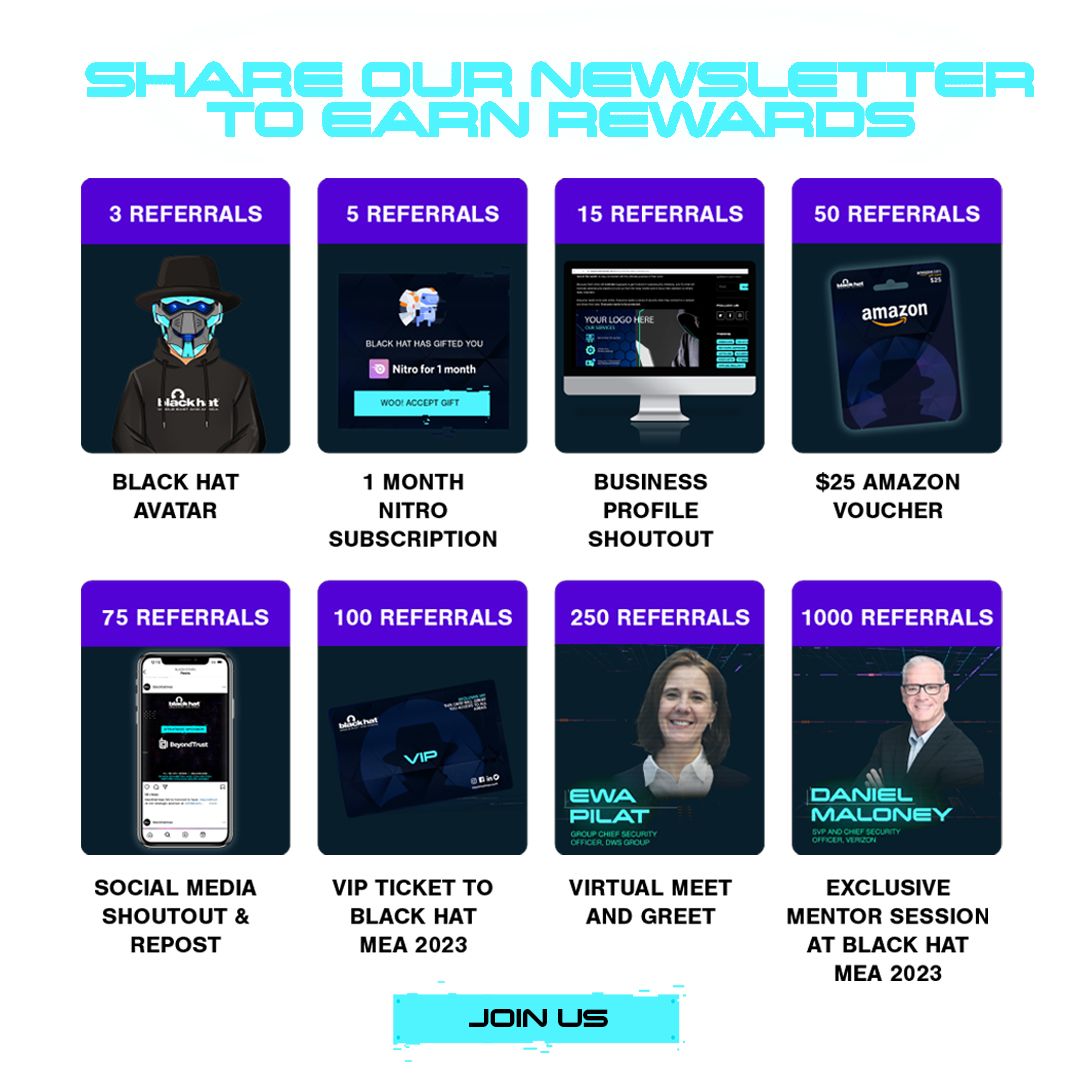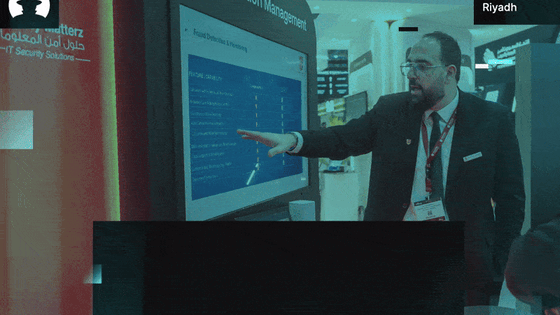
Why exhibitors keep choosing Black Hat MEA
Four exhibitors explain why Black Hat MEA is the region’s most important meeting point for cybersecurity buyers, partners, and talent.
Read More
Welcome to the new 123 cyber warriors who joined us last week. 🥳 Each week, we'll be sharing insights from the Black Hat MEA community. Read exclusive interviews with industry experts and key findings from the #BHMEA23 keynote stage.
Keep up with our weekly newsletters on LinkedIn, Subscribe here.
Doing the thing even if you’re not 100% sure how to do the thing.
Because we interviewed Omar Khawaja (CISO at DataBricks), and he said:
“The moments that most shaped my career were the ones I did not have the requisite skills for, but went ahead anyway – sort of like jumping into the deep end of the pool.”
And we love this sentiment. Other BHMEA speakers, like Lance James (Founder and CEO at Unit 221b), have pointed out to us before that the cybersecurity space tends to be competitive, and cultivate imposter syndrome – individuals aren’t necessarily encouraged to admit that they don’t know everything.
But sometimes the best way to learn is to give yourself permission to try. You learn on the job; from your successes, your mistakes, and from the effort you put in.
How do you know what you don’t know?
💡 By trying to do something.
When you approach a job with the mindset that you’ve learnt all the skills, you know what to do, and you don’t need to gain any new information in order to succeed, then you’re less likely to be open to learning along the way.
On the other hand, when you approach a job with the perspective of being a willing learner, you might actually be more likely to perform well.
Because when you start doing something you quickly identify the gaps in your knowledge. You discover what you need to learn in order to become better – and with a curious mindset, you can go and learn that stuff and improve your performance rapidly.
Being willing to try and to learn enables our brains to do better.
Research by psychologists Roddy Roediger and Kathleen McDermott, published in 1995, described two key sources of people’s judgements about whether or not they know something:
If you rely on memory to judge whether you know something, then you might think ‘I know that!’ when you hear a particular word (for example, the name of a malware group or a piece of security software). But that doesn’t necessarily mean you know it in the way you might need to know it for your work: you might not recall details about its impact or its structure that could help you formulate a robust security plan, for example.
Similarly, if a piece of information feels familiar because you’ve heard it discussed regularly and it’s been on the periphery of your knowledge for a while, you might judge yourself to know it – even if your knowledge is actually pretty sparse.
In essence, our own judgments of our knowledge are not reliable. We might overestimate or underestimate what we know – and when we do that, we can quickly find ourselves out of our depth (but confused about why, and unwilling to learn more) or on the flipside, we can miss out on opportunities because we think we’re not ready.
But when you learn on the job and approach your work with a sense that you don’t know everything and that’s OK, you’re better able to identify the gaps in your knowledge. And then you can fill them in – with relevant, memorable, effective learning.
A survey of 2,400 professionals on LinkedIn found that ‘heavy learners’ are more confident, more successful, and happier at work.
People who spent time at work learning and growing their knowledge based were:
And that happiness is on a sliding scale: the more of a heavy learner you are, the happier you become.
This makes sense when you ask the question: What is actually inspiring about work?
Because when the work itself is inspiring, the time you spend working becomes meaningful and helps to contribute to your overall wellbeing.
Go ahead anyway. Let yourself grow by diving in and being willing to learn. And like Khawaja, you might just find that those moments are the ones that shape your career the most.
Do you start projects or apply for jobs knowing that you don’t have all the skills?
1. Yes – absolutely. vote
2. No – I like to feel like I’ve got the task in hand before I try. vote

Do you have an idea for a topic you'd like us to cover? We're eager to hear it! Drop us a message and share your thoughts. Our next newsletter is scheduled for 07 February 2024.
Catch you next week,
Steve Durning
Exhibition Director
Join us at Black Hat MEA 2024 to grow your network, expand your knowledge, and build your business.
Join the newsletter to receive the latest updates in your inbox.

Four exhibitors explain why Black Hat MEA is the region’s most important meeting point for cybersecurity buyers, partners, and talent.
Read More
Why Riyadh has become essential for cybersecurity practitioners – from government-backed momentum and diversity to global collaboration and rapid innovation at Black Hat MEA.
Read More
Three startup lessons from founders who exhibited at Black Hat MEA 2025, on market fit, focus, and turning ideas into viable security businesses.
Read More